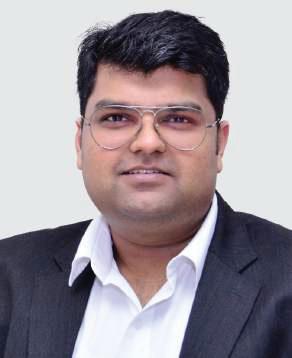
With the Indian government focusing on integrating renewable energy into the grids, switchgear technology has more opportunities for R&D advancement. Let us know more from Piyush Garg.
What switchgear advancements ensure safe, efficient renewable energy integration into grids while handling power intermittency?
With the Indian government focusing on renewable energy in the grids, the switchgear technology has more opportunities for R&D for advancement. From IoT Integration, communicable switchgear solutions, and compact designs to sensor integration, connectivity, fault detection, and predictive maintenance, today's switchgear systems have it all. Another advancement in hybrid switchgear, combining gas and vacuum insulation, reduces environmental impact by lowering SF6 gas use while enhancing system reliability and efficiency. Also, adopting solid-state CBS enables ultra-fast response time, which is crucial for protecting the grid from sudden fluctuations in renewable energy output. Together, these advancements ensure that modern switchgear can handle the dynamic, intermittent nature of renewable energy sources, enhancing grid stability and safety while supporting a transition to cleaner power.
Esta historia es de la edición December 2024 de EPR Magazine (Electrical & Power Review).
Comience su prueba gratuita de Magzter GOLD de 7 días para acceder a miles de historias premium seleccionadas y a más de 9,000 revistas y periódicos.
Ya eres suscriptor ? Conectar
Esta historia es de la edición December 2024 de EPR Magazine (Electrical & Power Review).
Comience su prueba gratuita de Magzter GOLD de 7 días para acceder a miles de historias premium seleccionadas y a más de 9,000 revistas y periódicos.
Ya eres suscriptor? Conectar

Shifting from resistance to adoption of RE
It is important to note that DISCOMS struggled financially even before the widespread adoption of solar energy. These challenges were familiar and were exacerbated by long-standing inefficiencies and financial mismanagement.

Changing BESS landscape in India
Self-sufficiency in battery storage is crucial for energy security, cost reduction, and sustainability. Key policies like incentivising domestic lithium mining, supporting R&D in alternative batteries, and promoting manufacturing hubs via PLI is boosting the sector.

Dhash PV pioneering future of solar technology in India
The company offers a comprehensive solution encompassing all DC components, from the PV module to the inverter.

Quality control is the keystone of the solar energy revolution in India
As India strives for 500 GW of solar capacity, rigorous quality assurance is essential to ensure system reliability, attract investment, enhance efficiency, and secure a sustainable energy future.

Domestic RE capacity hits new milestone
The total renewable energy installed capacity surged by an impressive 24.2 GW 13.5%) in just one year, reaching 203.18 GW in October 2024, up from 178.98 GW in October 2023.

Modernisation of power grid infra essential for seamless solar energy integration
Rayzon Solar leads the renewable energy revolution, pioneering high-efficiency solutions with cuttingedge N-Type TOPCon and 210R solar panels for sustainable energy advancements.

CMCE technology neutralises atmospheric charge effects
Lightning strikes on power transmission lines, substations, and power generation facilities can cause extensive equipment damage, leading to costly repairs and prolonged downtime.

Use of integrated transformer test facilities
Static Frequency Converter (SFC) is designed to test all types of power and distribution transformers as it provides variable output voltage and variable output frequency.

Lamco Transformers unveils cutting-edge innovations for RE integration
Lamco Transformers is committed to playing a vital role in the country's journey toward a sustainable energy future by combining innovative designs, cutting-edge technologies, and strategic collaborations.
Morigaon set to become country's semiconductor premier manufacturing site
Morigaon in Assam, spearheaded by Tata Semiconductor Assembly and Test Pvt Ltd (TSAT) aligns with the nation's broader goal of establishing a self-sufficient semiconductor ecosystem.